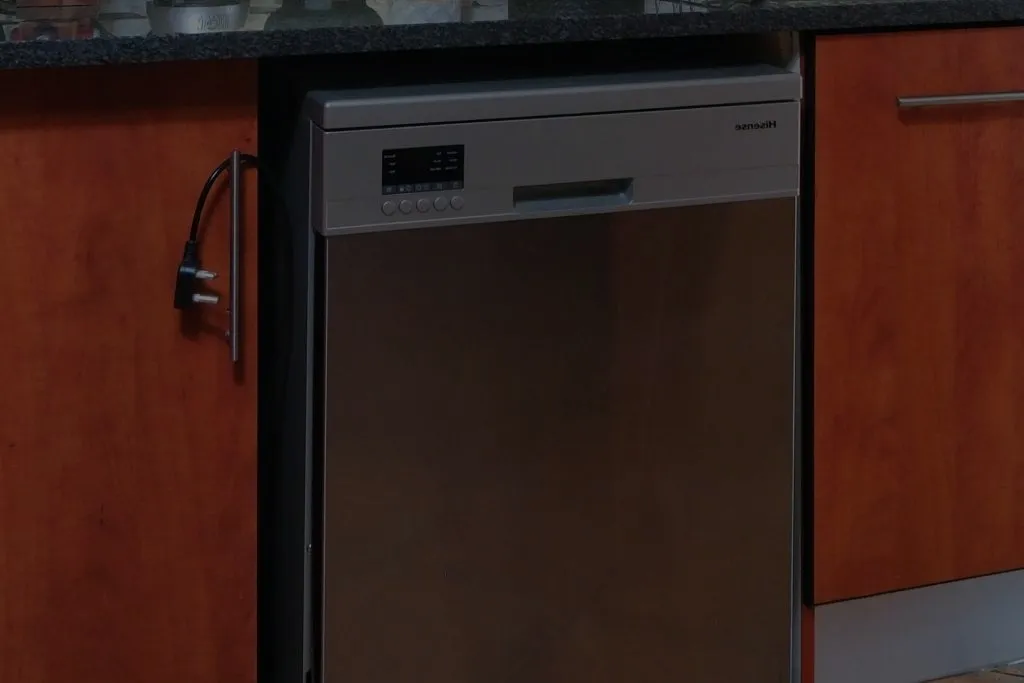Solving Common Dishwasher Problems: A DIY Guide

Leaky Dishwasher
Like a leaking washing machine, a dishwasher that regularly drips or spills water has multiple causes. Potential culprits behind your leaking dishwasher include:
- A damaged drainage hose
- A malfunctioning pump and pump seal
- A deteriorating door seal (especially common as dishwashers age)
- Overloading can also lead to occasional leaks, so it’s advisable to adhere to your dishwasher manufacturer’s loading guidelines for plates, utensils, and oversized items such as pots and pans. Alternatively, you can find online resources on how to load your dishwasher. Surprisingly, a wealth of opinions and tutorials are available on this subject!
Dirty Dishes Post-Cycle
Another predicament that can result from overloading your dishwasher is the persistence of dirty dishes even after a complete cycle. Using the wrong detergent for your specific dishwasher could also be the cause. With various dishwasher detergent formulations on the market—powders, gels, and dissolving tablets—it’s easy to make this mistake. Refer to your dishwasher’s manual for guidance, or visit the manufacturer’s website for assistance in selecting the suitable detergent for your appliance. Reputable dishwasher brands typically offer support and troubleshooting advice on their websites. Regrettably, more severe issues, such as circuitry damage or electronic control component failures, can prevent your dishes from getting adequately cleaned. While relatively rare, power surges can harm your dishwasher’s electronics, disrupting cycle completion. Dishwashers with electronic displays may exhibit error codes for incomplete cycles. In such cases, contacting a dependable dishwasher repair service is best for assistance.
Inadequate Drainage
Incomplete drainage in your dishwasher often arises due to clogs within the drainage system. Poor drainage can result in messy situations, including damaging leaks and bacterial growth inside and outside the dishwasher. Some dishwashers have serviceable filter elements that need maintenance, servicing, and regular cleaning to prevent clogging. However, your dishwasher may have more significant drainage problems related to its drain pump or other components. As mentioned earlier, damaged circuitry can interfere with cycle execution or progression, potentially causing this issue. For dishwasher repair due to drainage woes, it’s prudent to enlist the expertise of an appliance specialist.

Increased Noise Levels
Several factors could be at play if your once-quiet dishwasher has begun emitting a cacophony of sounds during operation. Overloading might be the culprit, as your dishwasher’s spray arms need ample space to rotate. Be cautious when loading oversized dishes like serving platters or large pots, as they may obstruct the spray arms. Unfortunately, excessive noise can also signal problems like a failing pump, a faulty bearing ring, or damaged spray arm seals. If your attempts at troubleshooting the issue haven’t yielded results and your appliance continues to generate excessive noise, it’s time to seek professional assistance.
Unresponsive Dishwasher
A dishwasher that refuses to start does not necessarily imply it’s a lost cause. A simple blown fuse or tripped breaker may disrupt your dishwasher’s power supply. Confirm that your dishwasher is receiving the necessary power to function. Another common hindrance to dishwasher startup is a malfunctioning door latch. If your dishwasher can’t close properly—or the electronic control system detects an issue with closure—the appliance will remain dormant.
Lingering Odors
Even after the cycle is complete, a persistent foul odor from your dishwasher can often result from food residue build-up in the filter or filtration system. Consider using a dishwasher cleaning solution, a specialized detergent designed for running a cycle without dishes to clean the appliance. White vinegar can also help freshen up your dishwasher – a more budget-friendly option. If cleaning your dishwasher fails to eliminate the odor, ensure it drains adequately, as discussed earlier.
Water Fill Problems
Water fill problems, another issue that can occasionally result from damaged circuitry or disrupted cycles, can be challenging to diagnose. If your dishwasher either doesn’t fill at all or doesn’t stop filling during operation, it could be due to a malfunctioning float or float switch or a problem with the water inlet valve. In such cases, it’s best to rely on the expertise of dishwasher repair professionals. For simpler repair process, check our Asko dishwasher manual:
Alpine Ca, Bonita Ca, Camp Pendleton Ca, Coronado Ca, Del Mar Ca, El Cajon Ca, Encinitas Ca, Escondido Ca, Imperial Beach Ca, Cardiff Ca, Carlsbad Ca, Chula Vista Ca, La Jolla Ca, La Mesa Ca, Lakeside Ca, Lemon Grove Ca, National City Ca, Oceanside Ca, Pacific Beach Ca, Point Loma Ca, Poway Ca, Ramona Ca, Rancho Bernardo Ca, Rancho Penasquitos Ca, Rancho San Diego Ca, Rancho Santa Fe Ca, San Marcos Ca, San Ysidro Ca, Santee Ca, Solana Beach Ca, Spring Valley Ca, Vista Ca Refrigerator repair, Freezer repair, Ice-maker repair, Wine-cooler repair, Washer repair, Dryer repair, Dishwasher repair, Stove repair, Oven repair, Range repair
Areas that we cover:
Services that we provide
REQUEST SERVICE
Book a Repair Appointment

You can find us here
